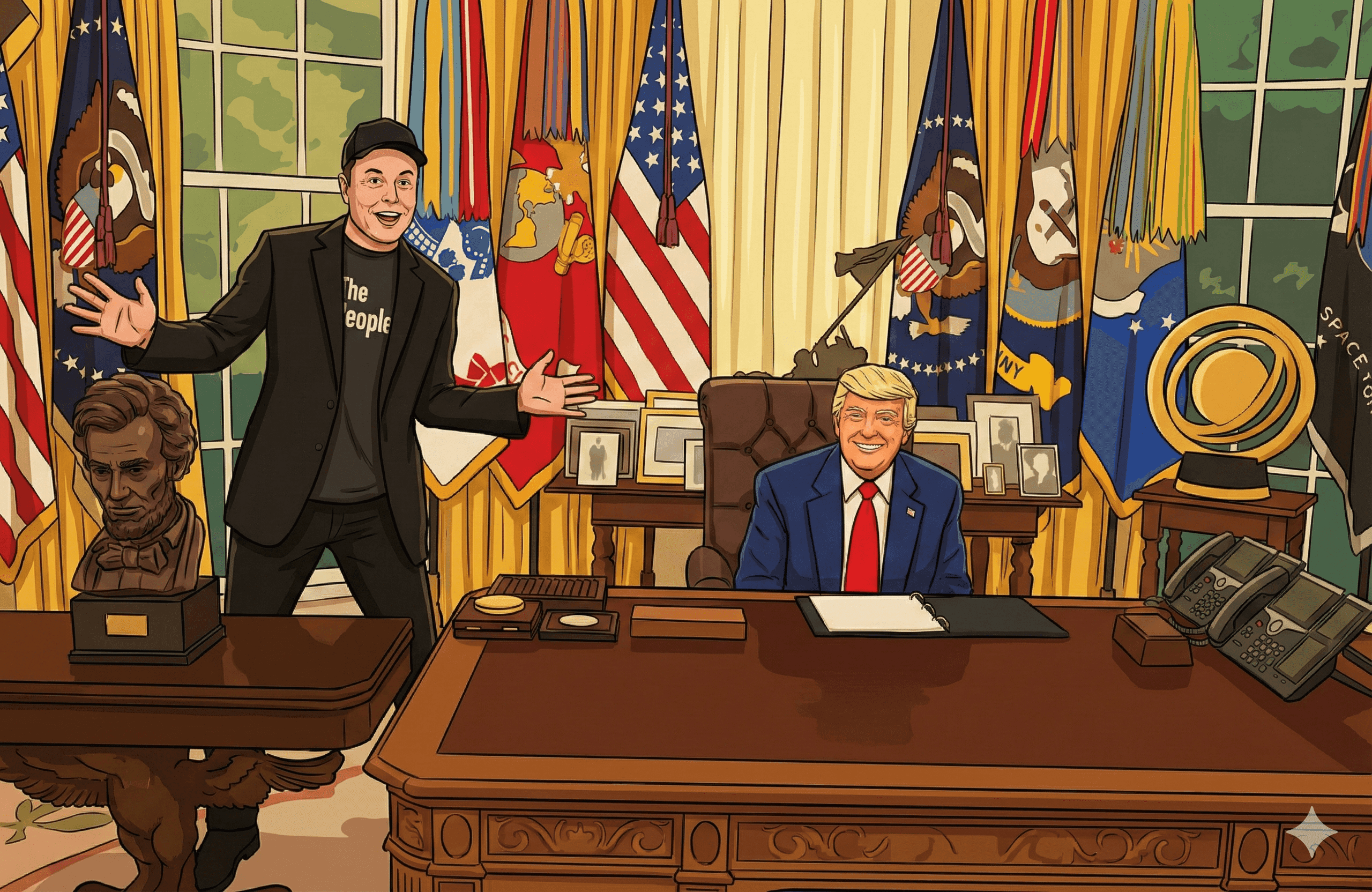Opinion | Mike Johnson Turned the Table
Yuan Media's Op-ed
By Editorial Board
The 118th Congress has been labeled as one of the most dysfunctional in decades, marked by deep divisions that have resulted in nearly two years of minimal achievements. However, this week, a notable accomplishment has finally emerged. After months of stalling, the foreign aid bill was eventually passed. A $95 billion foreign aid package will be allocated to Ukraine, Israel and Taiwan, respectively.
The driving force behind the bill was none other than Speaker Mike Johnson. Just six months ago, he was a relatively unknown rank-and-file Congressman, with someone asking, “Mike Who?” when he took the gavel. However, Johnson defended his position as Speaker and secured his place in history through his efforts to pass the bill.
The dispute centered on aid for Ukraine. Many in the US no longer support funding them, as the war has dragged on for too long. Democrats remain consistent in their desire to aid their European ally. However, this is not the case among Republicans, with divided opinions on whether to further fund Ukraine.
The far-right is fiercely against aiding Ukraine, considering it non-negotiable. Despite Johnson's repeated adjustments to the bill in an effort to reach a consensus and move forward, they remain unmoved. Prioritizing domestic issues first is their principle. As long as the border crisis persists, they are unwilling to allocate any resources or effort toward Ukraine.
A few Democrats were poised to step forward and back Speaker Johnson. Meanwhile, the fervently far-right Georgia Republican Congresswoman, Marjorie Taylor Greene, filed a motion to oust Speaker Johnson, aiming to remove him from Capitol Hill, reminiscent of what she and her far right allies did to former Speaker Kevin McCarthy.
Following Greene, Kentucky Republican Rep. Thomas Massie and Arizona Republican Rep. Paul Gosar joined the effort to oust Johnson.
Johnson was in serious jeopardy. The House Republicans hold only a one-vote majority. How can he withstand opposition from three members within his own party?
Congressional Democrats have indicated that if Johnson collaborates with them to pass the foreign aid bill, they'll make efforts to save him and secure his speakership. Johnson has a reputation for honesty and keeping promises, unlike McCarthy, who's seen as a man of few principles. Despite their differences, Democrats are willing to place their trust in Johnson.
However, if he relies solely on the other side to achieve his goals, it'll be seen as a betrayal by the current Republican party. He might be able to pull it off once, but it's not a sustainable strategy in the long run. Many people didn't see a clear pathway for him, and some in the media even suggested that we might have to choose another Speaker very soon.
Johnson didn't sit and wait for death. He knew that only Trump could help resolve the issue. Trump strongly opposed further funding for Ukraine, so his allies in Congress rejected the bill without hesitation. Therefore, earlier this month, Johnson visited Mar-a-Lago to speak with Trump.
According to a Republican familiar with their conversations, Johnson managed to persuade Trump by making two key points.
Firstly, if Ukraine is swallowed up by Russia without further support, it would mean that Trump would inherit an overseas crisis if he were elected and took office in January.
Secondly, Johnson also played to Trump's vanity by repeatedly crediting him for the adjustment made in the House bill, converting part of the Ukrainian economic aid from a grant to a forgivable loan. Ukraine will need to repay it when things return to normal.
In the meantime, NATO members like Britain and Poland made timely visits to Trump, assuring him that they have been and will continue to contribute to Ukraine's aid, standing united against Russia. They're not leaving Uncle Sam to deal with it alone.
Trump was managed. He understands that if he’s elected as the next President, it’s crucial to work efficiently with the Speaker. Therefore, although he had spent the day holed up in hostile territory in the Manhattan courtroom, Trump seized the chance to defend Johnson during an interview with the conservative radio host John Fredericks and said:
“Well, look, we have a majority of one, OK? It’s not like he can go and do whatever he wants to do. I think he’s a very good person. You know, he stood very strongly with me on NATO when I said NATO has to pay up … I think he’s trying very hard.”
MTG is a die-hard Trump fan. She became silent after Trump took the position to back Johnson without bringing up the motion she filed to oust the Speaker. Many House Republicans were part of the "vote-no-hope-yes" caucus, fearing criticism from Trump. Now, they can switch from "no" to "yes" without worry.
Eventually, last Saturday, the House passed the foreign aid bill. This Tuesday, Senate passed it with bipartisan support. Biden signed the legislation a day later and said that arms shipments to Ukrainian forces could begin “this week.”
One week ago, a House Republican said to an NPR reporter that the role of House Speaker is the toughest job in Washington, D.C., and no matter how hard one works, their efforts often go unappreciated. Even Jesus himself could not manage it, he said.
Against all odds, in the midst of chaos, the once-invisible Louisiana Congressman Mike Johnson, with limited experience in DC’s political arena, stepped up and accomplished the seemingly impossible mission.
When interviewed with POLITICO, reviewing John's work on the bill, former Speaker Nancy Pelosi said, “This is a hard job,” and offered Johnson grace. Other animated critics of the new Speaker, like his fellow Louisianan James Carville, changed tones, saying that Johnson “punched way above his weight.”
Mike Johnson hails from Benton, a small town in Louisiana with a population of just 2,048. His father was a firefighter and suffered burns over 80% of his body in an explosion, but fortunately managed to survive when many said he couldn't. This miraculous event further strengthened Johnson's already profound faith.
Evangelical conservatism is at the core of Johnson's brand and political identity. Johnson’s son will begin at the US Naval Academy this fall. “To put it bluntly, I would rather send bullets to Ukraine than American boys,” he said.
Johnson was not a typical ambitious man. “All I ever aspired to be was a fireman,” Johnson once said, echoing his father's profession. He never imagined he would be the one to extinguish the flames on Capitol Hill and ease tensions between opposing parties and within his own party. While his achievement may be temporary, his efforts have undoubtedly secured him a place in US history.
“Look, history judges us for what we do,” said Johnson emitionally, holding back tears and with a quivering lip at a news conference weeks ago in response to a question from The Washington Post. “This is a critical time right now, critical time on the world stage. I could make a selfish decision and do something that’s different, but I’m doing here what I believe to be the right thing.”

 Yuan Media
Yuan Media



